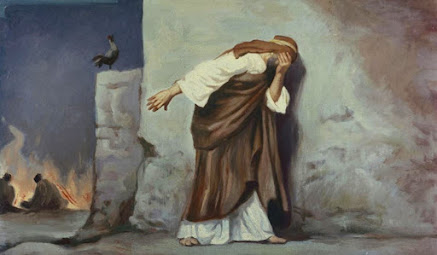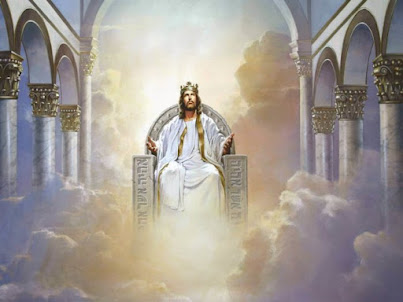It’s a commonly held belief, and one that isn’t spoken out loud all that
often:
“People that get awesome prophecies get the
worst trials!”
I think of the apostle Peter, back in
the day. He’d just received a heckuva prophetic word: "And I
also say to you that you are Peter, and on this rock I will build my
church, and the gates of Hades will not overpower it. [Matthew 16:18]
Dang. That’s a pretty big promise.
And not long after
that, Jesus warns him of his impending failure: “And the Lord said,
"Simon, Simon! Indeed, Satan has asked for you, that he may sift
you as wheat. But I have prayed for you, that your faith should not
fail; and when you have returned to Me, strengthen your brethren."
But he said to Him, "Lord, I am ready to go with You, both to
prison and to death." Then He said, "I tell you, Peter, the
rooster shall not crow this day before you will deny three times that
you know Me."” [Luke 22:31-34]
I was reflecting on
this story recently, particularly in the context of “Lead us not
into temptation” [Matthew 6:16, Luke 11:4], and I realized that
there are three parts to this conversation.
Part 1: Jesus
warns Peter of the upcoming trial. There is no failure discussed yet,
though recovery is.
Part 2: Peter boasts that he can take
anything, that he won’t actually fail.
Part 3: Jesus
warns Peter of his impending failure.
It seems to me that
Peter didn’t take Jesus’ warning all that seriously. I’m
embarrassed that I recognize Peter’s hubris.
It seems
to me that inherent in Jesus’ warning is an invitation. “I’ve
prayed for you. You probably need to pray about this as well.” He
emphasized this a little later, when he told the boys, “Watch and
pray so that you will not fall into temptation. The spirit is
willing, but the flesh is weak.” [Matthew 26:41]
I
probably need to note at this point: I have a strong belief that when
God gives a warning prophetically, he’s very seldom saying, “This
is inevitable, brace yourself.” Since his goal is our maturity in
him, I figure that a prophetic warning, like what Jesus said to Pete
here, is more along the lines of, “This is what’s coming down the
track; you can face it, or you can change what happens to that
track.”
I believe that Peter was not destined to fail, until he responded in the flesh a couple of times:
First, he boasted that he could take it. Then he slept instead of watching and praying. And because of that, he tried to stand on his own strength when faced with the reality of the unexpected trial [Matthew 26:69f]
And as a result, he did fail [Matthew 26:75]. And then in his grief and shame, he gave up and went back to his old life (of fishing), from before Jesus had called him [John 21:3]
Fortunately, Jesus followed up, fulfilling the “when you have returned to Me, strengthen your brethren” part of the prophecy [around the campfire in John 21].
The place that my meditation has taken me is this: I think I don’t accept the curse (and yeah, it kind of works like a curse) that says that any time I get a good prophecy, a good promise, that I therefore need to go through hell, that I must be thoroughly (and painfully) tested.
In place of that, I want to substitute the truth that I need to stay snuggled up with Jesus, I need to stay up-to-date in my intimate communion with him, I need to stay humble.
Maybe I’ll get sifted by hell. More likely I have the option to short-cut that trial by staying plugged in with my King. But in the end, I need to stay with him, rather than stand on my own in the face of the trial, rather than run off to the old life when I do fail.
Stay close to Jesus. That seems like pretty good advice for pretty much all the time.




.jpg)
.jpg)
.jpg)
.jpg)